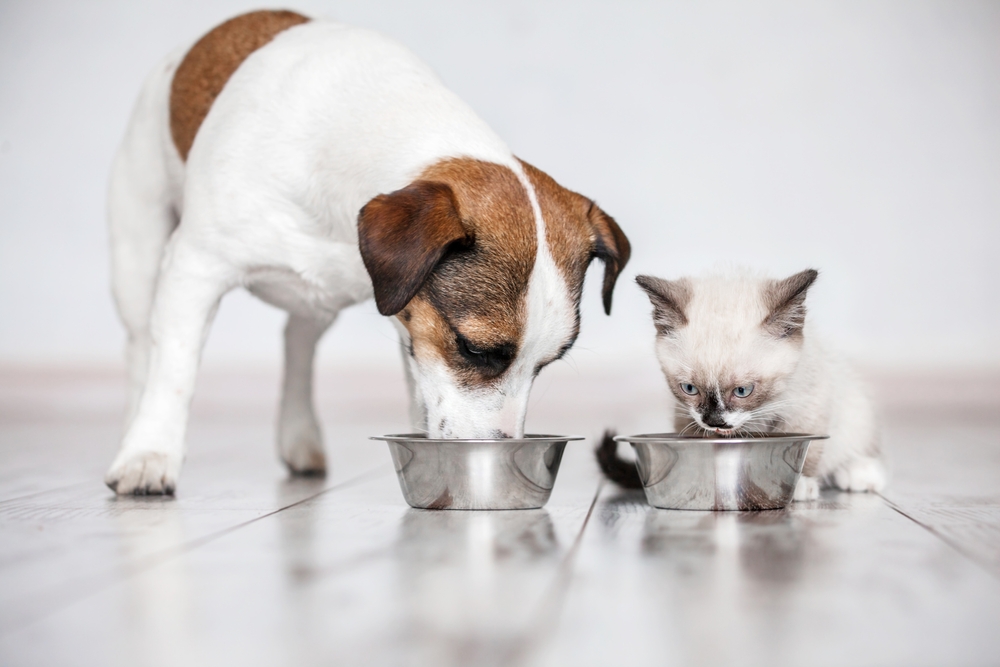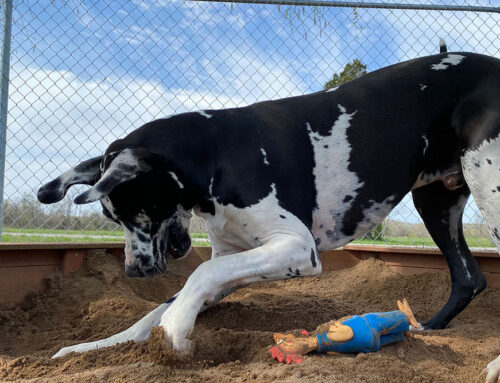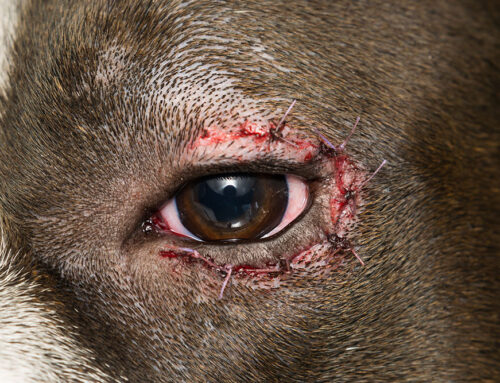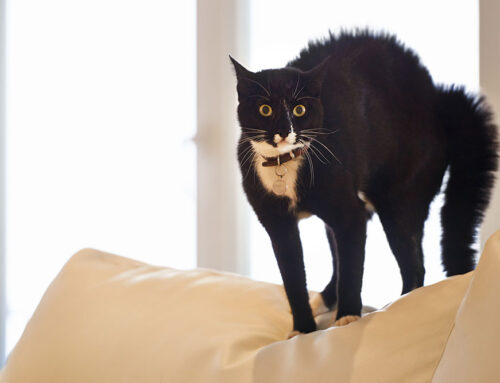Pet nutrition is often surrounded by myths that can mislead well-meaning pet owners. Learn to separate fact from fiction to help your four-legged friend stay healthy. From grain-free diets to cats needing cow’s milk, these misconceptions can lead to unintended health issues. Our Wales Animal Clinic team is dedicated to helping you navigate these myths to make informed decisions about your pet’s diet.
Myth 1: All pets benefit from a grain-free diet
Some pet food marketers tout that all pets should be on a grain-free diet. However, grains aren’t bad for all pets. Grain-free diets are marketed as the natural, healthier choice for pets. They often suggest that grains cause allergies or digestive problems, but remember, your pet’s diet should be about what’s best for their unique nutrition needs.
The truth
- Grain allergies are rare in pets — Most pets aren’t allergic to grains. When they do have food allergies, pets are usually allergic to proteins such as chicken or beef.
- Grain-free diet health risks — Removing grains without reason from your furry pal’s diet can deprive your pet of essential nutrients and has been linked to dilated cardiomyopathy (DCM), a heart condition in dogs.
What to to
- Consult your vet — Talk to your veterinarian before making any big changes to your pet’s diet.
- Focus on balance — Rather than eliminating grains from your furry pal’s diet, aim for a balanced diet that meets your pet’s specific nutritional needs.
Myth 2: Cats need cow’s milk
Although those classic cartoons show cats happily lapping up milk, adult cats don’t need cow’s milk to stay healthy. Although kittens sometimes need a special formula, adult cats who drink milk can have digestive issues and upset stomachs.
The truth
- Lactose intolerance — Many cats are lactose intolerant, which can lead to upset stomachs and diarrhea.
- Enzyme decline — Kittens produce lactase to digest their mother’s milk, but as they age, they lose this ability.
Quick tip
Rather than giving your cat cow’s milk, offer them water. As always, check with our veterinarian to learn about your cat’s best hydration options.
Myth 3: Table scraps are good for pets
Sharing your meal with your pet might seem like a loving gesture, but doing so often causes more trouble than it’s worth. Your pet might enjoy eating table scraps as they’re chowing down, but these foods could cause issues later.
The truth
- Health risks — Table scraps can contribute to obesity and nutritional imbalances.
- Toxic foods — Some human foods, such as chocolate, grapes, onions, and garlic, are toxic to pets.
Safe choices
- Pet-formulated diets — Only offer your furry pal foods specifically made for pets.
- Safe treats — If you want to share your food with your pet, give them something safe such as a small piece of plain, cooked chicken or a vet-approved treat.
Myth 4: Pet food – Natural means organic

Many pet food labels proudly boast the term “natural.” Although the term sounds healthy, “natural” doesn’t mean “organic,” and the difference could matter a lot for your pet’s diet.
The truth
- Regulation differences — “Natural” means that the ingredients are derived from animal, plant, or mined sources, but they can still be processed and contain additives. The term “organic” is strictly regulated and refers to food produced without synthetic fertilizers, pesticides, or genetically modified organisms (GMOs).
- Pet food label ingredient meanings — Just because a product is labeled “natural” doesn’t mean the ingredients are automatically better or free of artificial components.
Key takeaway
When choosing pet food, understand that “natural” and “organic” aren’t interchangeable. Look for specific certifications if you prefer to feed your pet organic products, and always read the ingredient list carefully. For recommendations on foods that meet your pet’s unique nutritional needs, consult with our veterinarian.
Understanding the truth about pet nutrition myths helps you better care for your furry companion. In addition to the facts we have presented here, check out the American Animal Hospital Association (AAHA) pet nutrition myths website. For recommendations based on your pet’s unique dietary needs, give our Wales Animal Clinic team a call or schedule an appointment online. Whether you have questions about your pet’s current diet or need guidance on switching foods, we’ve got you covered. Stay informed, make the best nutritional choices, and help your pet thrive for years to come.







Leave A Comment